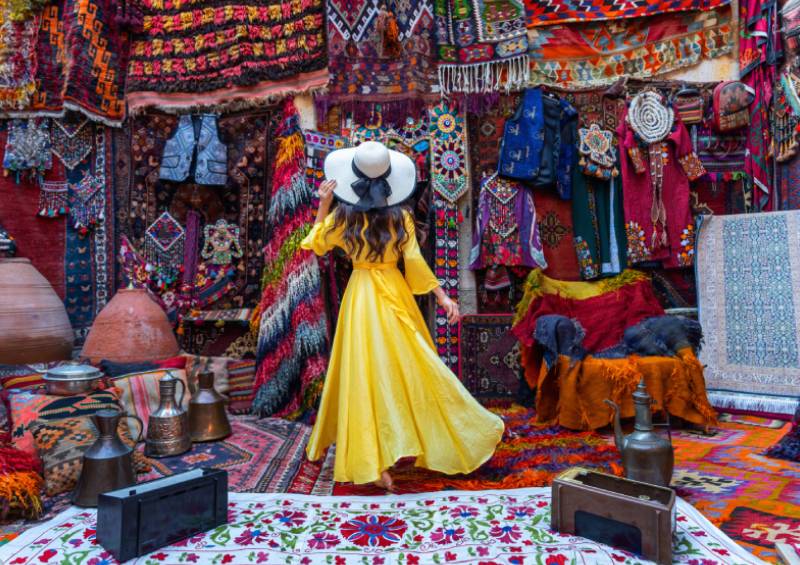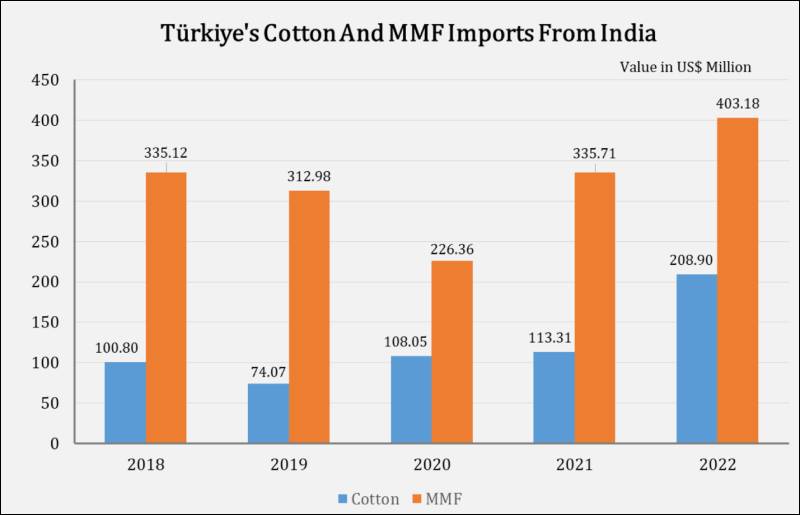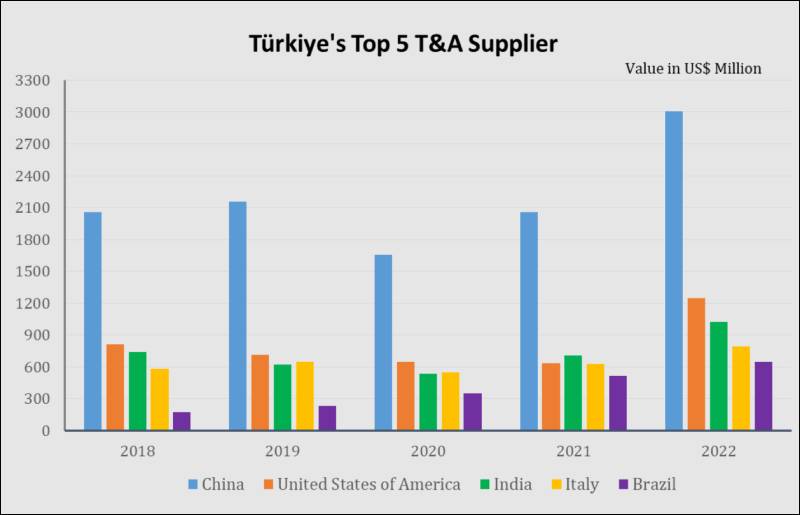Unlocking Trade Opportunities: Türkiye’s Thriving Textile and Apparel Industry

Türkiye’s textile and apparel industry stands as a global leader, known for its historical significance and modern competitiveness. Türkiye’s textile and apparel sector boasts a diverse and extensive production capability that covers the entire value chain. From manufacturing textiles and yarns to producing ready-made garments and home textiles, Turkish products are renowned for their high quality and blending fashion with functionality.
Export Orientation
Playing a pivotal role in Türkiye’s economy, the textile and apparel sector is export-oriented, with a substantial share of its production earmarked for international markets.
In 2022, Türkiye’s textile and apparel industry ranked seventh globally, contributing around 4% of the world’s total textile and apparel exports. The industry’s exports reached US$ 37,297.56 million, with a 2.23% growth over the previous year. Dominating the exports, knitted apparels constituted US$ 11,011.47 million, capturing 30% of Türkiye’s total exports, while woven apparel grew by 12.63% to US$ 8,464.90 million.
Türkiye’s export portfolio includes a range of products, but textiles like carpets and other floor coverings witnessed a drop of nearly 13% in 2022. Despite this, Türkiye’s textile and apparel products found their way to Germany, Spain, UK, USA, Netherlands, Italy and France.
Türkiye’s competitive edge lies in lower production costs, access to skilled labour and its strategic proximity to major global markets. This makes it a preferred destination for brands and retailers seeking reliable and cost-effective sourcing options.
Turkish manufacturers prioritize product quality and innovation, embracing the latest technologies and design trends. This commitment ensures that Turkish textile and apparel products remain competitive on a global scale.
Import Trends
In 2022, Türkiye witnessed significant growth in textile and apparel imports, marking an increase of 31.48% to US$ 15,097.66 million. The major imported commodity was cotton, constituting 32% of total textile and apparel imports. Imports of cotton totaled US$ 4,842.01 million, majority of which came from the US.

India, as the seventh-largest cotton exporter to Türkiye, played a significant role in fulfilling this demand. Turkish imports of cotton from India increased by 84.35% to US$ 208.90 million in 2022.
Another major import category was man-made filament (MMF), accounting for 19% of total textile and apparel imports. China was the largest MMF exporter to Türkiye, with a 36% market share. India was the second-largest MMF exporter, holding a strong 14% share in Türkiye’s MMF imports.
Man-made staple fibres (MMSF) also had a substantial presence in Türkiye’s import segment, representing 15% of total textile and apparel imports. China, Indonesia and India were the top three suppliers of MMSF to Türkiye.
Country-wise Textile and Apparel Imports
China emerged as the largest supplier to Türkiye, contributing 20% of the total textile and apparel imports, totaling $3,008.89 million in 2022. The US became the second-largest supplier with a remarkable 96.34% growth, accounting for 8% of the total imports. India secured its position as the third-largest supplier with imports totaling $1,021.72 million and a growth rate of 44.13%.

Italy and Brazil followed as the fourth and fifth largest suppliers, with a 5% and 4% share of Türkiye’s textile and apparel imports, respectively.
Textile Machinery Imports
Türkiye’s textile machinery imports have been on the rise since the post-Covid-19 pandemic era. In 2022, textile machinery imports increased by 3.08% to $3,159 million. The highest imported commodity in this category was textile fibre spinning machinery, which constituted 22% of total textile machinery imports.
Textile printing machinery, accounting for 21% of total imports, was the second-highest commodity in this segment. Notably, non-woven machinery and weaving machine looms witnessed a drop in 2022.
Opportunities for Indian Manufacturers
The thriving textile and apparel industry in Türkiye presents various opportunities for Indian textile, apparel and machinery manufacturers:
Export Partnerships: Indian textile and apparel manufacturers can leverage Türkiye’s strong export networks to access European and Middle Eastern markets.
Machinery Supplies: Türkiye’s increasing textile machinery imports open doors for Indian machinery manufacturers to provide advanced solutions.
Innovation Exchange: India and Türkiye can benefit from mutual exchange of technological and design innovations.
Sustainable Practices: Collaboration can lead to the advancement of sustainable practices in the textile and apparel industry, addressing growing environmental concerns.
Bilateral Trade: India and Türkiye can further strengthen their bilateral trade relationships, capitalizing on the existing foundation for collaboration.
Türkiye’s textile and apparel industry offers promising opportunities for Indian manufacturers. With its diverse and export-oriented approach, it stands as an attractive destination for trade and collaboration. The industry’s commitment to quality, innovation and sustainability makes it an ideal partner for Indian businesses looking to expand their global footprint. It is time for Indian textile, apparel and machinery manufacturers to explore the bountiful opportunities that Türkiye’s thriving market has to offer.
(Henry Dsouza, Associate Editor of Textile Insights is Author of this article.)















